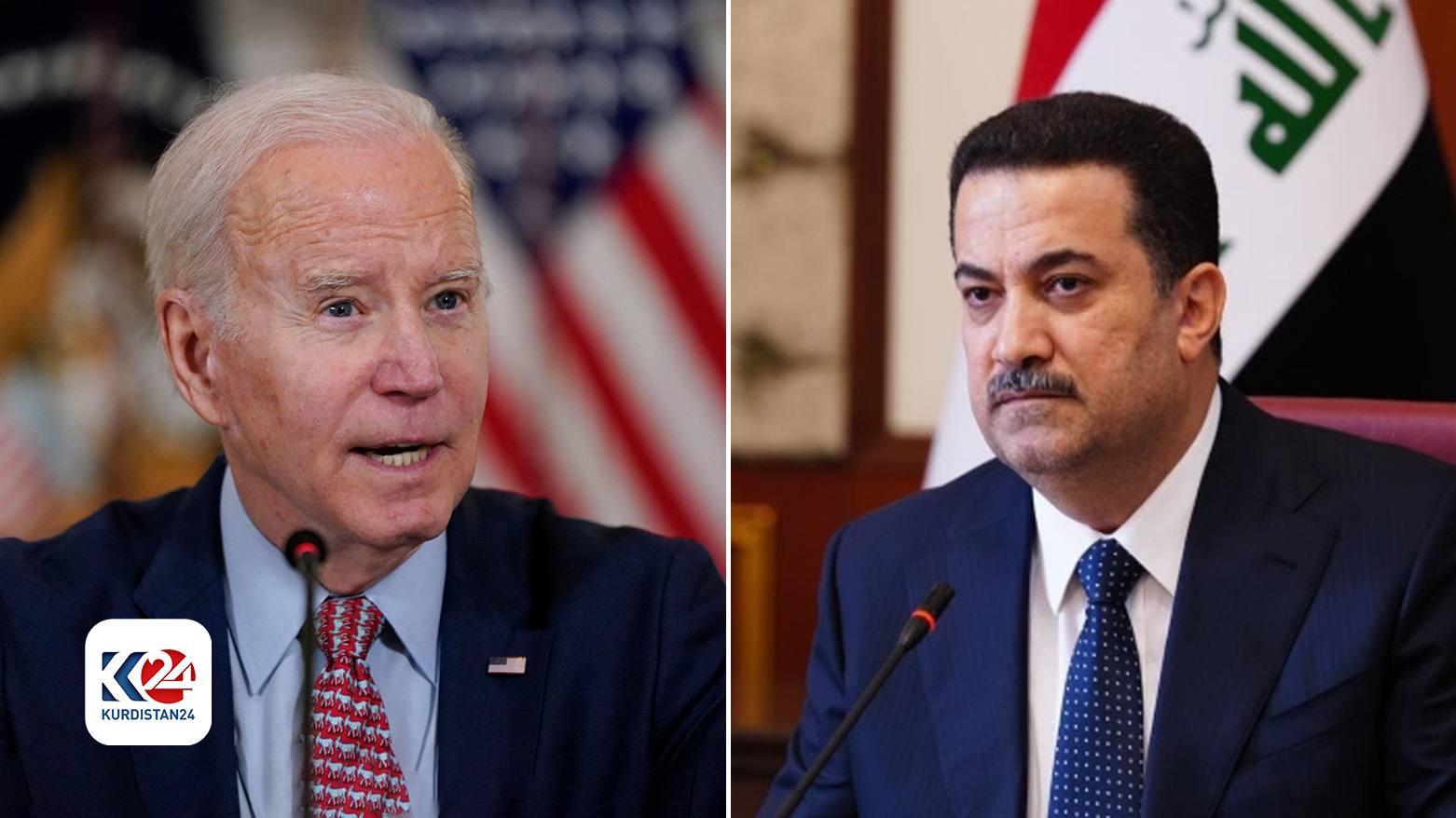Iraqi Prime Minister to Make First Visit to Washington

WASHINGTON DC, United States (Kurdistan 24) – The White House announced on Friday that Iraqi Prime Minister Mohammed Shia’a Al-Sudani will visit Washington next month.
The visit will occur on April 15, White House Press Secretary Karine Jean-Pierre announced in a written statement, and he will meet with U.S. President Joe Biden “to coordinate on common priorities and reinforce the strong bilateral partnership between the United States and Iraq.”
It will be Sudani’s first visit to Washington, as well as the first meeting between the two leaders.
Sudani became Iraqi Prime Minister in October 2022, ending the year-long deadlock that followed the 2021 elections, which, in turn, were held following months of nation-wide protests against corruption and unemployment and brought down the previous government.
Support for Sudani from Masoud Barzani and the Kurdistan Democratic Party (KDP) was the key factor that allowed Sudani to garner the votes in the Iraqi parliament necessary to become prime minister.
That those parties supported Sudani suggests that he is relatively independent of Iran.
Read More: Iraqi PM-designate lauds Masoud Barzani—underscoring importance of KDP in Iraqi politics
However, Iran has established a lot of influence in Baghdad, and that, invariably, constrains Sudani in his dealings with the U.S.
Read More: Strong Iranian Influence in Iraq: New York Times
Sudani’s Meetings with U.S. Officials
Sudani made his first visit to the U.S. last September, when he attended the opening of the U.N. General Assembly in New York. On the sidelines of that event, he met with Secretary of State Antony Blinken.
In their meeting, Blinken extended an invitation to Sudani to meet with Biden in Washington at some unspecified time. Only now has the date for that meeting been announced.
In addition, Blinken and Sudani “reaffirmed their commitment to strengthening the partnership between the two countries and reaffirmed the principles in the U.S.-Iraq Strategic Framework Agreement,” according to the U.S. read-out of their Sept. 18 meeting in New York.
The U.S.-Iraq Strategic Framework Agreement was concluded in the last months of the George W. Bush administration and provides for enduring ties between the two countries, including on security and defense cooperation.
Blinken also “underscored U.S. support for reopening of the pipeline with Türkiye”—i.e. the pipeline that allows the Kurdistan Regional Government (KRG) to export oil. It has remained closed since March 2023, and the KRG has lost billions of dollars in revenues.
More broadly, Blinken “urged the Iraqi government to continue its cooperation with the Kurdistan Regional Government (KRG) to foster the KRG’s stability and resiliency.”
Although neither the U.S. nor Iraq could know it, the strategic landscape was about to change dramatically—as the war in Gaza erupted on Oct. 7, with Hamas’s extremely bloody cross-border assault.
As the highly-regarded Institute for the Study of War summarized the situation that followed,“Iran and its so-called ‘Axis of Resistance’ are exploiting the Israel-Hamas war to support their objective of expelling U.S. forces from the Middle East.”
Most of the problems between Baghdad and Erbil that existed last September remain unresolved. Writing earlier this month, Al-Monitor reported that Sudani would be visiting Washington shortly and he is facing a U.S. drive to improve relations with the KRG.
The Al-Monitor report, written shortly after KRG Prime Minister Masrour Barzani made his first visit to Washington in that capacity (Feb. 26 to March 1), suggested that “Barzani got to make his case first.”
Al-Monitor described “the red-carpet treatment accorded” him, which included “meetings with Secretary of State Antony Blinken, White House Middle East coordinator Brett McGurk, and U.S. energy envoy Amos Hochstein.”
Along with Barzani’s meetings with National Security Council Advisor, Jake Sullivan, and Sasha Baker, Acting Undersecretary of Defense for Policy, Barzani’s schedule was “seen as proof that the Biden administration has elevated the Kurdish entity in its Iraq strategy,” Al-Monitor said.
Read More: U.S. Presses Baghdad to Resolve Disputes with KRG ahead of Sudani Visit: Report
Presumably, those issues will be discussed, although the White House announcement of Sudani’s upcoming visit focused on other matters.
It stated that Biden and Sudani “will consult on a range of issues,” including “our shared commitment to the lasting defeat of ISIS and evolution of the military mission nearly ten years after forming the successful Global Coalition to Defeat ISIS.”
“They will also discuss ongoing Iraqi financial reforms to promote economic development,” it concluded, “and progress towards Iraq’s energy independence and modernization.”
The last point suggests a U.S. intent to end, or at least diminish, Iraq’s import of electricity from Iran, for which it has received regular sanctions waivers.
Read More: New Procedure for Funding Iraqi Purchase of Iranian Electricity, as U.S. Approves Sanctions Waiver
